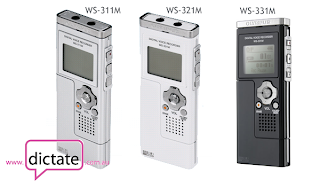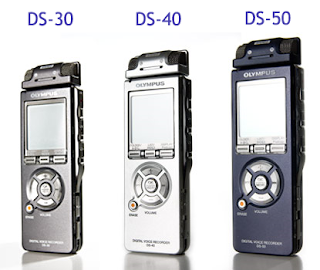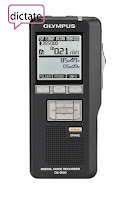This week we will look at small compact digital voice recorders that are light weight but still pack a punch when it comes to audio quality and sound pickup.
These recorders would typically be used by students to record lectures, attendees at conferences who want to record conference speakers, journalists to grab sound bites or market researchers doing out in the field interviews or focus groups.
Below is a brief summary of what this typical user needs:
- I want to record single speaker (i.e. only me talking) recording my notes.
- I will be recording interviews and meetings with a few people both in my office or out and about with background noise.
- I am a journalist and need to grab sound bites while out and about.
- I am a student and want to record lectures I attend.
- I am going to a conference and want to record the audio at a conference.
- I want the ability to record directly to my computer hard drive bypassing the inbuilt memory.
- I do not need the ability to rewind audio, hear what I just said and then tag audio on the end, much like the old style analogue dictaphones. I am happy just hitting record to start and stop to end the recording.
- I use a Mac. I use Windows XP. I use Windows Vista.
The best recorders for you would be the
WS-311M,
WS-321M or
WS-331M.

All three units function exactly the same way, the only difference is the unit colour and the amount of onboard memory which effects the total amount of audio recording time.
All voice recorders come with multiple recording modes, we always recommend that you use the highest quality recording mode for your audio, in the case of these recorders that is STXQ (
STereo e
Xtra High
Quality). The maximum recording time for these three units on STXQ is:
WS-311M - 512Mb storage - 8hrs 45mins
WS-321M - 1Gb storage - 17hrs 40mins
WS-331M - 2Gb storage - 35hrs 30mins
These recorders are not just all round excellent recorders but they can also store your files and photos on their inbuilt memory and even have the ability to play back MP3s.
For more information on the WS series recorders from Olympus please contact the team at
Dictate Australia - sales@dictate.com.au


